
 Flash News
Flash News
Gunfire in Durres, a 30-year-old man is injured
Accident on Arbri Street, car goes off the road, two injured
Arrests of "Bankers Petrolium", Prosecution provides details: Exported and sold 532 billion lek of oil, caused millions of euros in damage to the state
Ndahet nga jeta tragjikisht në moshën 28-vjeçare ylli i Liverpool, Diogo Jota
Posta e mëngjesit/ Me 2 rreshta: Çfarë pati rëndësi dje në Shqipëri
Her and Him 's shadow over the port of Durres and the negotiation of' sharing power with the opposition '
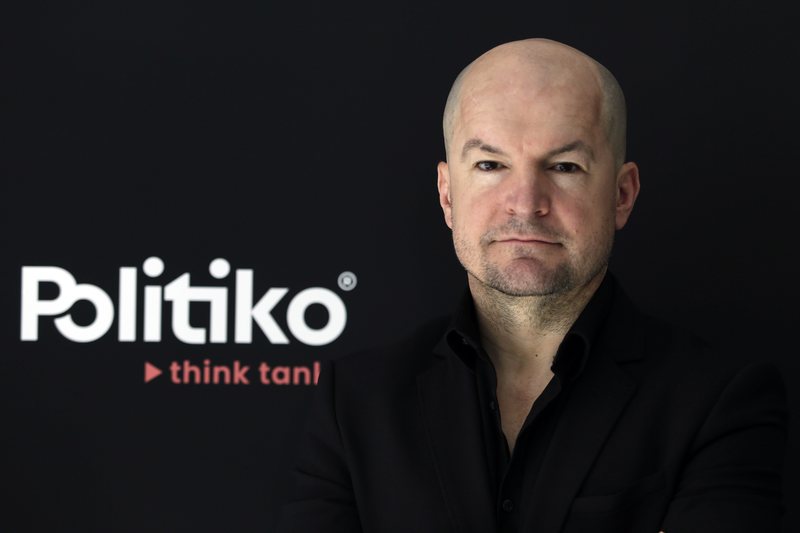
Alfred Lela
Of all the gin joints in the world, you had to walk into mine *… This sentence from the movie Casablanca is famous, and retrieved, precisely to emphasize the relentless game of chance. In human relations of course, but also the game of history.
Such a coincidence, a kind of blind and almost impossible game, appears in an episode of last's week of Albanian politics and business. MCN, a new TV channel that is apparently following scoops or scandals, wherever they come from, intending to enter the viewers' radars, in an increasingly wild market, published some facsimiles which were to be the antechamber of a scandal.
A company with a partner, the brother-in-law of the leader of the Democratic Party, appears as a party in the new port of Durrës. A giant investment that comes with as many construction sites, tenders, monetary and labor force, and, of course, political and electoral capital.
Ports, today and always, all over the world, from Rotterdam to Newark and Singapore to Antwerp are areas of trade, power but also the works of the underworld. When writing about the great world centers in history, which he calls ‘hearts’, identifying nine of them, Jacques Delors lists several ports and talks about their importance in commercial, political, and social life.
This is to say that Durrës will be the 'first economic heart' of Albania during the construction of the port (two of them in fact), but probably even later.
This context or big plan, I believe, explains every appetite and an open eye for the economic benefit of the main players in Albania. The two main parties, the SP and the DP, have always played these roles. They have been mainly in the role of commissars, those who do propaganda or anti-propaganda, both projects and big economic messages. The main message seems to have been to keep out the multinationals which, through monetary interest and power, could also dictate the political currents in the country. It is no coincidence that Albania, unlike other countries, even the Balkan ones, does not have any major global brands stationed in its territory. The only projects with international companies have been temporary ones, such as road construction (Bechtel-Enka), hydropower plants (Statcraft), etc.
The 'big brands' are Albanian and revolve around already familiar names like Balfin, Kastrati, etc., but in a typical Albanian form, they are better known by the identity of their owners. Albanian politicians find engagement and negotiating with local actors much easier. It is not only Albanian as a common language but especially Albanian as a form of thinking. In this big business scheme, it is not only the governments that play a role but also the opposition. The latter may choose to remain silent or fight hard against an affair or company. The opposition may come out constantly denouncing or appear for the sake of appearances. There are cases of silence and pacts between the government and the opposition in Albania.
They are, of course, the knowledge of only a few people, who 'walk' in the media-political circles and who have access to information. The general public gets lost in the superficial debate constructed in such a way as to seem like a ‘relentless war’ between the parties. Which is multiplied by the media, both for the audience and because it becomes part of the cover for a lot of dealings.
This time two infallible signs have caught our eye. The first, a statement, initially passed without any attention, was that of Grida Duma, MP, former candidate for the municipality of Durres, one of Basha's 'media guns' and trustees of his family. Duma mentioned Durres and its port, expressing surprise at how Rama seeks peace and negotiations with the opposition but does not include in them the biggest project of the time. Without much analysis, such a statement falls into the category known as a shakedown. One of the senior opposition politicians did not present a national project such as integration, reconstruction, emigration, or vaccination of the population, as one of the possible bridges of cooperation between the parties, but a business scheme. For what reason: Does the government lack expertise? Was the government choosing a partner outside the circle of the country's strategic alliances? Or the opposition was seeking to become the ombudsman of the project; a unit that ensures there would be no abuse, theft, etc.?
All are vague because such is the statement. As such, lost somewhere in the fog like all the sentences that to the edges of blackmail.
About a month after Grida's death came another revelation. A shell company set up to take over or be part of the construction of the port of Durrës, under the name of a partner of the brother-in-law of the opposition leader.
The news, like all that affects both sides, was quickly buried. Knowing the ethical catastrophe it produces, even mentioning the name of the family of the opposition leader, who is suspected of leaving the opposition battles in favor of personal gains, as part of a PR operation, several statements followed, including the lawyer of the company in question.
It will be impossible to discover the legs of this creature that 'feeds' on both shores of the Albanian political port, but coincidence, that innocent display of past and present guilt makes us at least give that matter some thought
Latest news

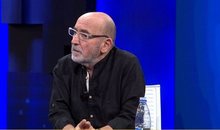


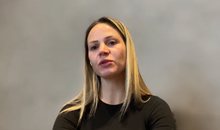

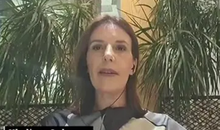
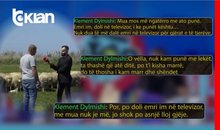
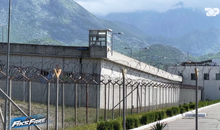
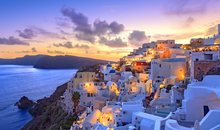
Greece imposes fee to visit Santorini, how many euros tourists must pay
2025-07-03 20:50:37
Don't make fun of the highlanders, Elisa!
2025-07-03 20:43:43
Gunfire in Durres, a 30-year-old man is injured
2025-07-03 20:30:52
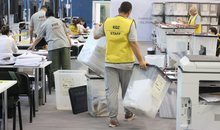
The recount in Fier cast doubt on the integrity of the vote
2025-07-03 20:09:03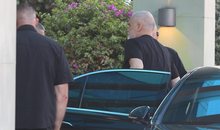
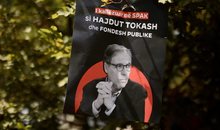

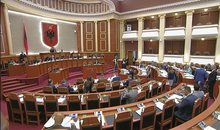

Heatwave has left at least 9 dead this week in Europe
2025-07-03 19:00:01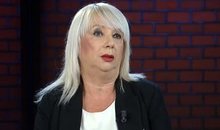
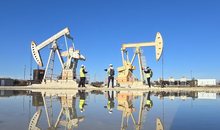
Oil exploitation, Bankers accused of 20-year fraud scheme
2025-07-03 18:33:52
Three drinks that make you sweat less in the summer
2025-07-03 18:19:35
What we know so far about the deaths of Diogo Jota and his brother André Silva
2025-07-03 18:01:56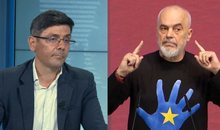
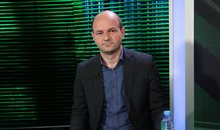
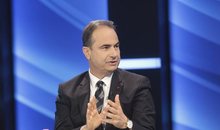

Another heat wave is expected to grip Europe
2025-07-03 17:10:58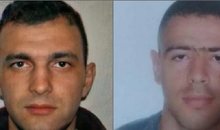
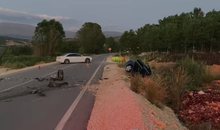
Accident on Arbri Street, car goes off the road, two injured
2025-07-03 16:45:27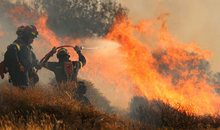

Accused of two murders, England says "NO" to Ilirjan Zeqaj's extradition
2025-07-03 16:25:05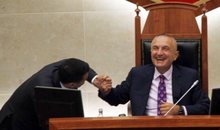
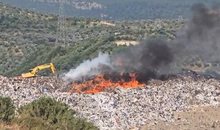

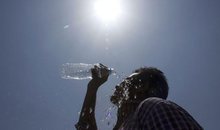
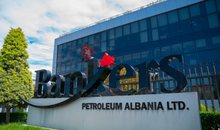
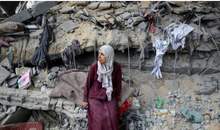
Gaza rescue teams: Israeli forces killed 25 people, 12 in shelters
2025-07-03 15:08:43
Diddy's trial ends, producer denied bail
2025-07-03 15:02:41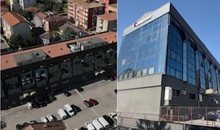

Agricultural production costs are rising rapidly, 4.8% in 2024
2025-07-03 14:55:13
Warning signs of poor blood circulation
2025-07-03 14:49:47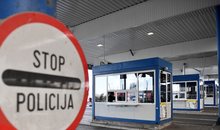
Croatia recommends its citizens not to travel to Serbia
2025-07-03 14:31:19
Berisha: Albania is the blackest stain in Europe for the export of emigrants
2025-07-03 14:20:19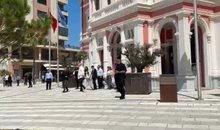
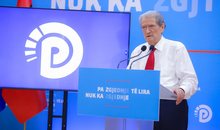
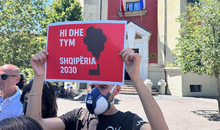
'Ministry of Smoke': Activists Blame Government for Wasteland Fires
2025-07-03 13:59:09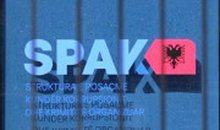

AFF message of condolences for the tragic loss of Diogo Jota and his brother
2025-07-03 13:41:36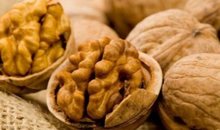
Five healthy foods you should add to your diet
2025-07-03 13:30:19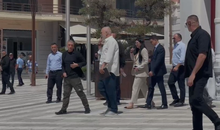
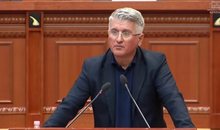


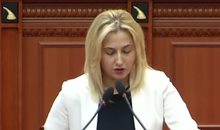


A unique summer season, full of rhythm and rewards for Credins bank customers!
2025-07-03 12:12:20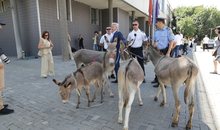
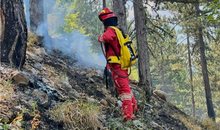
Fire situation in the country, 29 fires reported in 24 hours
2025-07-03 12:00:04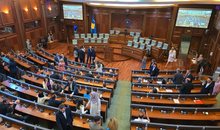
The constitution of the Kosovo Assembly fails for the 41st time
2025-07-03 11:59:57
The gendering of politics
2025-07-03 11:48:36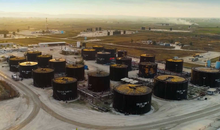
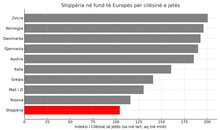
The price we pay after the "elections"
2025-07-03 11:25:39
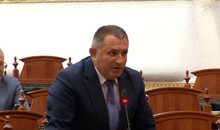
Xhafa: The fire at the Elbasan landfill was deliberately lit to destroy evidence
2025-07-03 11:08:43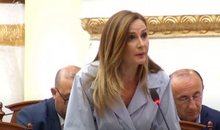

The 3 zodiac signs that will have financial growth during July
2025-07-03 10:48:01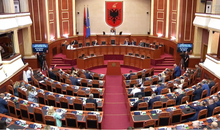
Democratic MP talks about the incinerator, Spiropali turns off her microphone
2025-07-03 10:39:24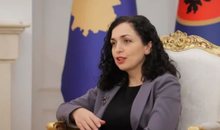

Ndahet nga jeta tragjikisht në moshën 28-vjeçare ylli i Liverpool, Diogo Jota
2025-07-03 10:21:03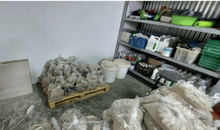
Cocaine trafficking network in Greece, including Albanians, uncovered
2025-07-03 10:10:12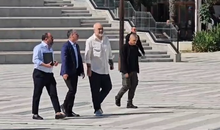
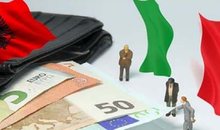
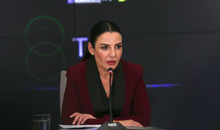
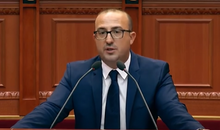
Korreshi: Election manipulation began long before the voting date
2025-07-03 09:39:13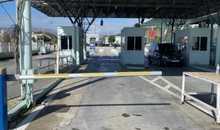
Arrest of Greek customs officer 'paralyzes' vehicle traffic at Qafë Botë
2025-07-03 09:28:41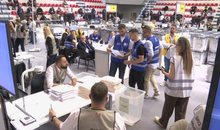
After Tirana and Fier, the boxes are opened in Durrës today
2025-07-03 09:21:10
Enea Mihaj transfers to the USA, will play as an opponent of Messi and Uzun
2025-07-03 09:10:04

Foreign exchange, the rate at which foreign currencies are sold and bought
2025-07-03 08:53:50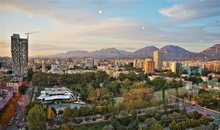
Index, Albania has the worst quality of life in Europe
2025-07-03 08:48:10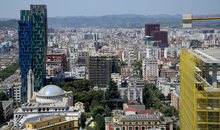
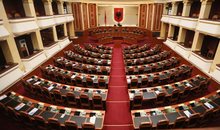

Horoscope, what do the stars have in store for you today?
2025-07-03 08:17:05
Clear weather and high temperatures, here's the forecast for this Thursday
2025-07-03 08:00:37
Posta e mëngjesit/ Me 2 rreshta: Çfarë pati rëndësi dje në Shqipëri
2025-07-03 07:46:48



Lufta në Gaza/ Pse Netanyahu do vetëm një armëpushim 60-ditor, jo të përhershëm?
2025-07-02 21:56:08
US suspends some military aid to Ukraine
2025-07-02 21:40:55



Methadone shortage, users return to heroin: We steal to buy it
2025-07-02 20:57:35
Government enters oil market, Rama: New price for consumers
2025-07-02 20:43:30
WHO calls for 50% price hike for tobacco, alcohol and sugary drinks
2025-07-02 20:41:53



